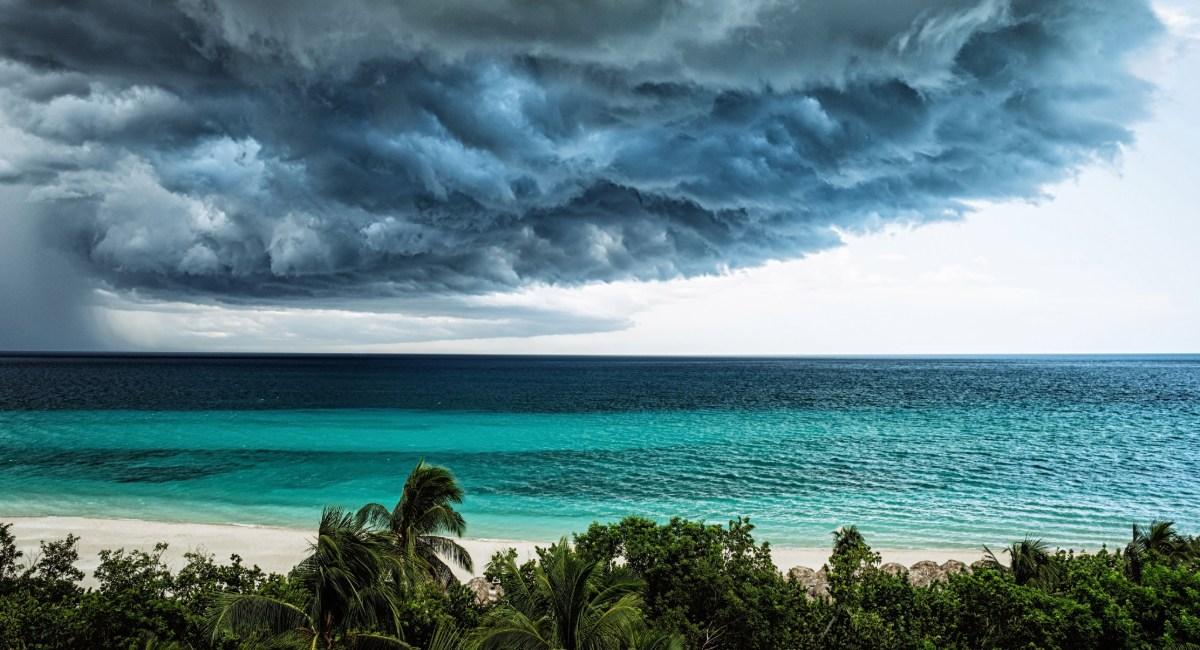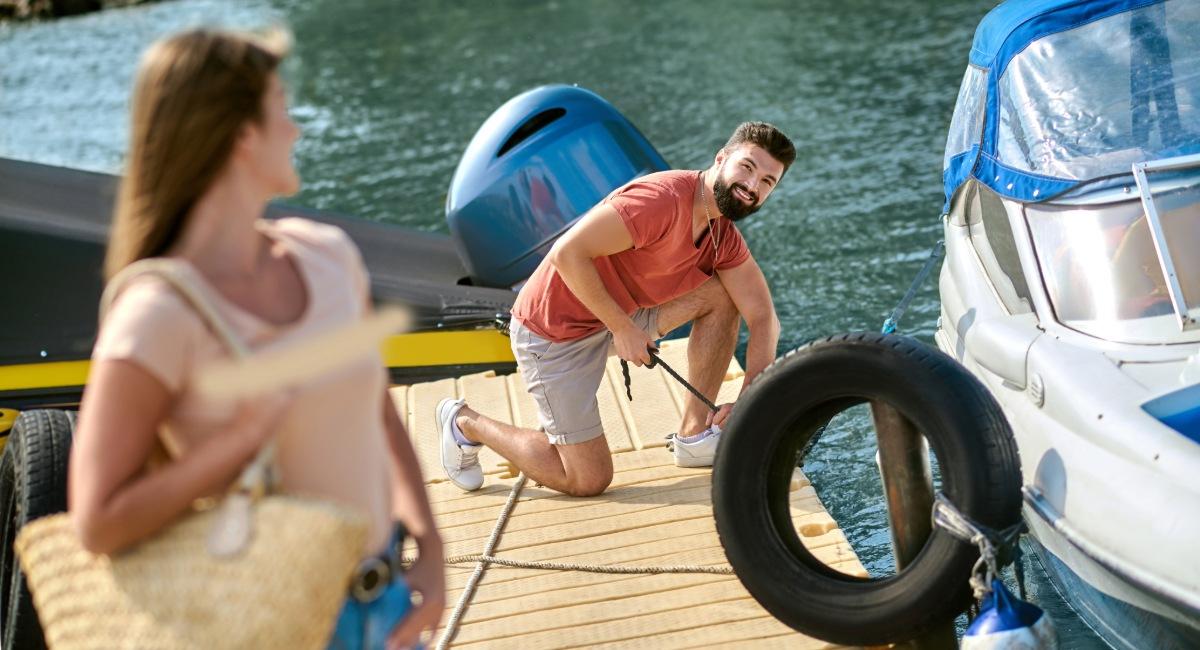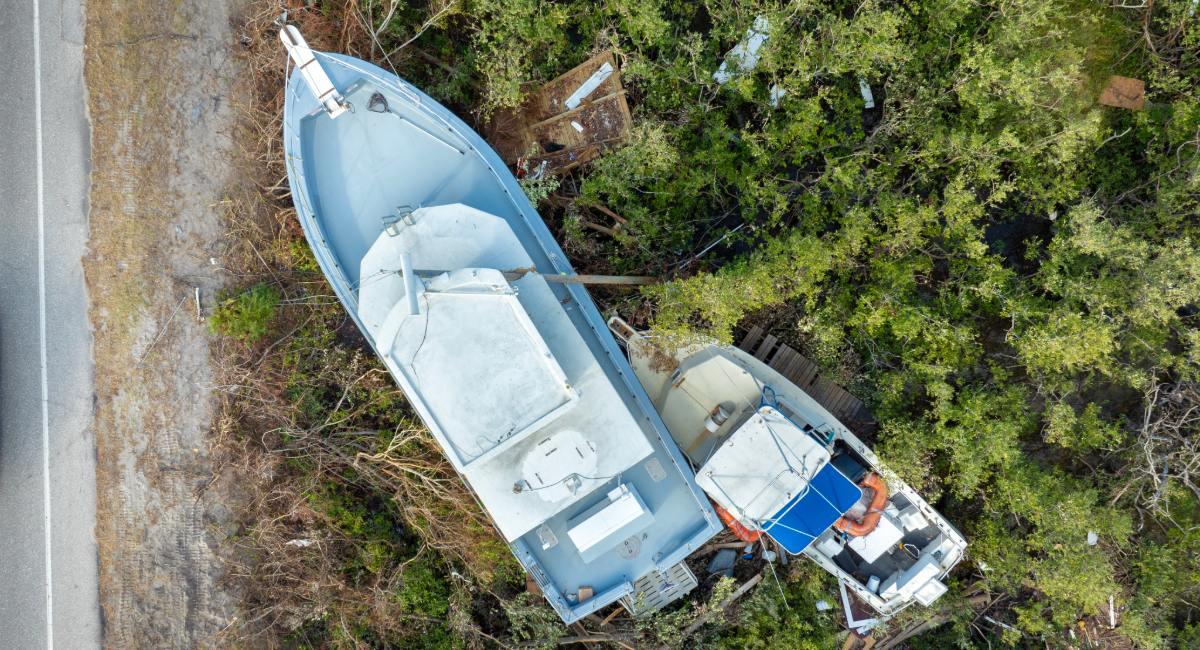Jul 31, 2025
Hurricane Prep for Boat Owners: Insurance Tips and Checklists
Hurricane Prep for Boat Owners: Insurance Tips and Checklists
A
By Aaron Ammar
Protect your boat from 2025's 16+ predicted storms. Essential hurricane boat insurance tips, coverage options, and preparation checklists.
Insurance products
Blog Post
Education

TL;DR: With over 16 named storms forecasted for the 2025 Atlantic hurricane season, now’s the time to ask: Is your boat insurance ready? While your vessel may be secure at the marina, your policy might not be. Many policies exclude named storm damage or require hurricane coverage to be in place at least 30 days before a storm forms. This guide covers essential insurance checkpoints, proven preparation strategies, and actionable checklists to protect your vessel and investment. From understanding coverage limits to securing your boat physically, we'll help you navigate hurricane season with confidence and proper protection in place.
How Does Hurricane Boat Insurance Work?
Comprehensive boat insurance coverage can protect your vessel from hurricane damage, but only if explicitly included in your policy. Here's the reality many boat owners discover too late: standard liability-only policies won't cover storm damage to your boat itself.
Think of hurricane boat insurance like packing for an adventure; you need the right gear for the conditions you'll face. Here's what we recommend you look for:
Physical Damage Protection is the preferred policy type for hurricane protection, as it protects against all hazards unless specifically excluded. Covering repairs or replacement if your vessel suffers wind, rain, or storm surge damage, it's your hull’s best friend when the winds start howling. When shopping for comprehensive boat insurance, make sure hurricane coverage isn't just an expensive add-on but integrated into your core protection.
Named Storm Coverage is where things get interesting. This protection kicks in when the National Weather Service officially names a storm, but here's the catch: you can't buy this coverage once storm watches start appearing on your weather app. It's like trying to buy travel insurance after your flight's been delayed.
Salvage and Wreckage Removal covers the unglamorous and expensive aftermath of hauling your boat out if it sinks or becomes stranded. Many carriers sweeten the deal by reimbursing precautionary haul-out costs when warnings are issued.
Personal Property Coverage protects all the gear that makes your boat feel like home, from that expensive fish finder to your favorite fishing rods.
The key insight? Many boat insurance policies in hurricane-prone areas come with named storm exclusions by default. You'll need to specifically request and pay for hurricane coverage.
What Are the Most Common Hurricane Insurance Exclusions?
Understanding what your policy doesn't cover is like reading the weather before you sail, absolutely essential for avoiding devastating financial surprises.
Geographic Restrictions create invisible boundaries that would make any adventurer cringe. Insurance companies draw arbitrary lines on maps using latitude and longitude coordinates, and premiums can jump dramatically if your boat is stored outside of their "safe zone."
Seasonal Limitations restrict when and where you can use your boat. Many Florida boat owners religiously migrate their vessels north from June through November, not for better cruising, but because their policies exclude hurricane coverage during peak storm season.
Preparation Requirements can void your coverage faster than you can say "storm surge." Some insurers require formal hurricane plans with military precision, specific steps, exact timelines, and backup procedures. Miss one detail, and your claim gets tossed overboard.
Deductible Surprises pack the biggest punch. While your regular deductible might be a manageable $5,500, hurricane claims can carry deductibles of $50,000 or more for luxury vessels. Deductibles cause many boat owners to face the choice between financial ruin and walking away from their beloved vessel.
Navigational Speed Bumps during hurricane season can restrict where you take your boat. Some policies create "hurricane boxes" on the map; venture into these coordinates during storm season, and you're sailing into higher premiums or complete coverage exclusions.
Value Determinations matter when the check gets written. "Agreed value" means you and the insurer shake hands on a number upfront, while "actual cash value" means they'll factor in depreciation after the damage is done. Choose wisely, your future self will thank you.
How to Review Your Hurricane Boat Insurance Before Storm Season?
Think of your pre-season insurance review like checking your gear before a long passage. Thorough preparation prevents nasty surprises when conditions get rough.
Coverage Limits Reality Check: Your boat's value changes faster than tide tables, especially in today's market. Many boaters discover they're underinsured only after filing a claim. Take a hard look at what your boat would actually cost to replace today, not what you paid for it five years ago.
Policy Deep-Dive Detective Work: Time to put on your reading glasses and dig into the fine print. Look for phrases like "named storm exclusions," "hurricane deductibles," and "navigational limits." These are the landmines that insurance companies bury in the paperwork.
Documentation Life Raft: Gather everything that proves your boat exists and matters to you, including registration, recent surveys, equipment inventories, and marina agreements. Keep copies of all important documents in waterproof containers and maintain both digital and physical backups.
Emergency Contact List: Create a contact list that includes your insurance agent, marina manager, U.S. Coast Guard, National Weather Service, and emergency towing services. Having these contacts readily available can save precious time during rapidly developing storm situations.
Hurricane Plan Documentation: Insurance carriers want to see your storm strategy laid out like a detailed cruise plan. Where will you take your boat? What's your backup if that falls through? Document your step-by-step preparation and evacuation procedures.
Premium and Deductible Review: Know exactly what you'll owe if disaster strikes. Hurricane deductibles can be eye-wateringly high, and surprises during claim time can make matters worse.
What's the Complete Physical Hurricane Preparation Checklist?

Protecting your vessel requires systematic preparation that begins long before storm clouds gather on the horizon. Start early, be thorough, and always have backup plans. Here's our time-tested approach:
Pre-Season Preparation (April-May)
Storage Location Evaluation: Identify safe storage options like hurricane-rated marinas, dry storage facilities, or inland locations away from tidal waters and falling trees. The best spots fill up quickly, so be sure to register early for haul-out programs. Keep an eye on NOAA's hurricane forecasts to understand your regional risk levels when choosing storage locations.
Hurricane Toolkit Assembly: Create a "storm box" containing extra ropes, fenders, duct tape, plastic sheeting, tools, and chafing gear, all kept together. Don’t wait until the weather is deteriorating to figure out where you stored the extra dock lines. BoatUS offers excellent hurricane preparation guidelines that complement our real-world experience with detailed checklists and equipment recommendations.
Professional Arrangements: Line up qualified friends or licensed captains who can execute your hurricane plan if you're caught out of town. Your backup crew should know your boat almost as well as you do.
When Storm Warnings Are Issued (72-48 Hours Before)
Secure Loose Items: Remove everything that could become a projectile, including canvas, sails, dinghies, electronics, biminis, and roller furling sails. If it's not bolted down, it comes off. What can't be removed should be secured below deck.
Strengthen Mooring Systems: Double all dock lines, rig crossing spring lines fore and aft, and attach them high on pilings to handle storm surge. Add chafing protection at every contact point using tape, rags, rubber hoses, or leather wrapping.
Install Protection: Install fenders, fender boards, or tires around your boat like you're preparing for the world's most aggressive docking. Your boat will be dancing with the dock all night, and you want that waltz to be as gentle as possible.
Final Storm Preparation (24-12 Hours Before)
Electrical Systems: Charge batteries to 100%, ensure bilge pumps can run marathon shifts, consider backup power, and disconnect shore power. Storms love to test electrical systems, so be ready.
Water Management: Clear every drain and scupper of debris. Your boat needs to shed water like a well-designed deck, not collect it like a swimming pool. Double-check that automatic bilge pumps are functioning properly.
Final Documentation: Photograph your boat from every angle once she's tucked into her storm berth. These photos become crucial for insurance claims, so think of them as your boat's "before" pictures.
Safety Priority: We cannot stress this enough, do not stay aboard your vessel during a hurricane. Winds exceed 100 mph, tornadoes spawn unpredictably, and your boat insurance can't replace you. Your boat is equipment; you are irreplaceable.
How Do You Navigate Hurricane Insurance Claims Successfully?

Filing hurricane claims requires systematic documentation and persistent follow-up to ensure fair compensation. Here's what works:
Immediate Response Actions: Call your insurer the moment it's safe to assess damage; delays can make simple claims complicated. Your policy likely requires prompt notification, and failure to report quickly often results in claim denials. The best insurers prioritize quick, fair claim processing, so look for providers with proven track records of stress-free claims handling when choosing your coverage.
Damage Documentation: Photograph all damage thoroughly and write detailed descriptions of what you observe. Document hull damage, missing equipment, and flood damage, and save any damaged items as evidence. Insurance companies love photographic proof.
Professional Assistance: Consider hiring marine surveyors or repair specialists to evaluate damages and write formal estimates. Professional documentation can strengthen your claim significantly and can identify damage you might miss. Think of them as local guides who know the territory. Their expertise can be worth far more than their fees.
Communication Management: Log every phone call, email, and letter with your insurer. Complete claim forms with precision, understand your insurer’s timelines, and follow up regularly on your claim's progress to hold them accountable.
Know Your Rights: Insurance companies must honor their policy terms, including coverage for hull damage, engine repairs, and total losses. But remember, they're protecting their bottom line, not yours. Don't accept the first offer without careful evaluation.
Legal Considerations: If you're facing resistance, denials, or offers that don't match your damages, consider professional legal help. Sometimes, the mere mention of legal representation can change an insurer's tune.
How Can I Reduce Hurricane Insurance Costs?
Smart boat owners can lower their premiums while maintaining comprehensive protection through strategic decisions and proactive measures.
Age Matters (And So Does Maintenance): Newer boats are seen as less risky and typically qualify for lower deductibles. If you're boat shopping, consider vessels 15 years or newer to smooth your path through both financing and insurance.
Plan Like a Pro: Creating detailed hurricane plans isn't just smart seamanship, it's smart business. Insurers love seeing specific storm locations, step-by-step preparation procedures, and backup options. The more thorough you are, the more confidence you inspire.
Professional Guidance: Working with specialized marine insurance brokers can save you serious money. These pros know which carriers love what types of boats and can help present you favorably to carriers.
Geographic Strategies: Some boat owners move their vessels outside hurricane zones during peak season. It's like migrating with the weather, following favorable conditions while maintaining coverage and reducing premiums.
Bundle and Save: Combining your hurricane boat insurance with other policies often unlocks discounts that can fund your next adventure. Many insurers offer recreational vehicle insurance bundles that can cover your boat, RV, motorcycle, and other toys under coordinated policies, often with significant savings and simplified claims processes.
Risk Mitigation Features: Installing impact-resistant equipment or wind-mitigation features sometimes qualifies you for premium discounts. Think of these upgrades as dual-purpose investments; they protect your boat and your wallet.
Take Action Before the Next Storm Warning
With 2025 hurricane forecasts predicting above-average activity, including 16+ named storms and multiple major hurricanes, the time for preparation is now, not when storm warnings fill your weather app.
Don't wait until a storm is on the radar; review your hurricane boat insurance coverage today. Use our comprehensive checklist to protect your vessel physically, then connect with a trusted marine insurance specialist to ensure you're fully prepared for hurricane season. Your boat represents both adventure and investment; proper preparation protects both while giving you peace of mind to enjoy the waters you love.
Wave goodbye to hurricane stress and hello to confident coastal cruising with comprehensive protection that lets you focus on what matters most: your next great adventure on the water.
Disclaimer: This information is for educational purposes and shouldn't replace professional insurance advice. Requirements vary by state and situation—always chat with a licensed agent for personalized guidance.
Here's the golden rule we share with every boat owner: 30 days minimum before any storm. Insurance companies won't let you buy hurricane coverage once the National Weather Service starts issuing storm warnings. It's like trying to buy health insurance after you're already in the emergency room. We recommend getting your coverage squared away before June 1st, when hurricane season officially begins.
Many policies now include this smart coverage, and some reimburse up to 50% of haul-out and relaunch costs when storm warnings are issued. It's like being paid to make smart decisions. Check your specific policy language, because this coverage varies widely between insurers.
Boat insurance typically ranges from under $200 annually for smaller boats to over $1,000 for larger vessels, with hurricane-prone areas like Florida averaging around $600-$1200 per year. But here's what catches people off guard: premiums can skyrocket if your boat sits in designated "hurricane belts."
No, homeowner insurance policies typically exclude watercraft coverage entirely. You might get limited coverage for some personal property aboard, but your vessel itself requires its own marine insurance policy. Don't find this out the hard way.
Think of navigation limits like international borders, cross them without permission, and you're in trouble. If your boat gets damaged while outside your policy's agreed-upon area, your insurer can deny the entire claim. Always verify limits before any seasonal migration or extended cruise.
Roamly Insurance Group, LLC ("Roamly") is a licensed general agent for affiliated and non-affiliated insurance companies. Roamly is licensed as an agency in all states in which products are offered. Roamly license numbers. Availability and qualification for coverage, terms, rates, and discounts may vary by jurisdiction. We do not in any way imply that the materials on the site or products are available in jurisdictions in which we are not licensed to do business or that we are soliciting business in any such jurisdiction. Coverage under your insurance policy is subject to the terms and conditions of that policy and is ultimately the decision of the buyer.
Policies provided by Roamly are underwritten by Spinnaker Insurance Company, Progressive Insurance Company, Safeco Insurance Company, Foremost Insurance Company, National General Insurance, Mobilitas Insurance Company, and others.
Connect
© 2026 Roamly All rights reserved.
